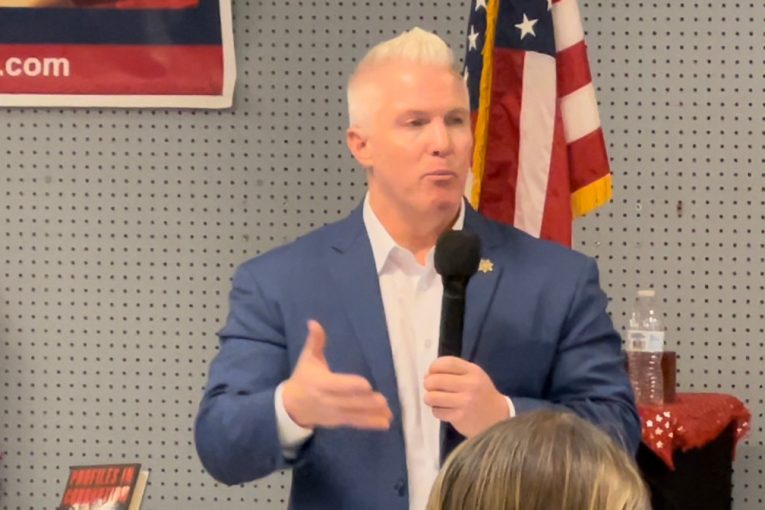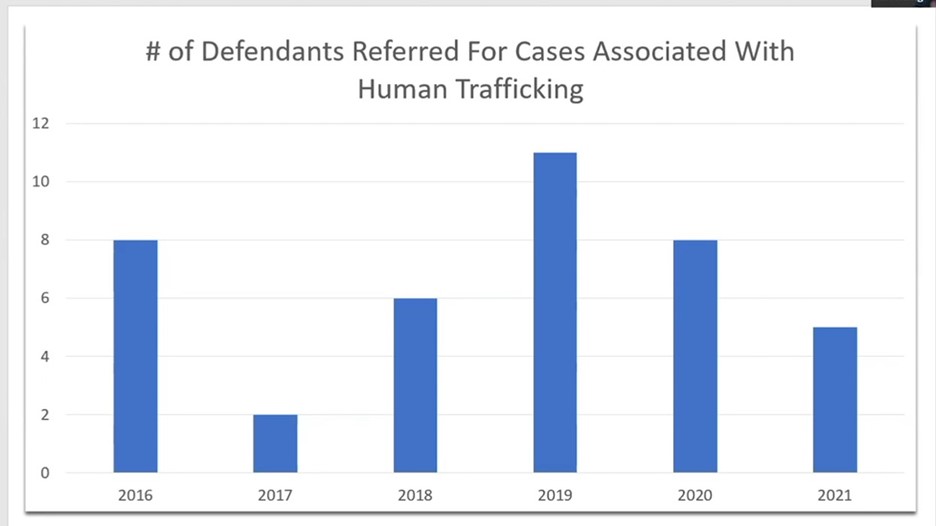
 by Robert J. Hansen
by Robert J. Hansen
Woodland, CA – The Davis Enterprise has taken to publishing letters of support for Yolo District Attorney Jeff Reisig that make assertions of fact without any data to support their claims.
One letter of support was from a San Francisco father whose son tragically died from fentanyl poisoning.
“Reisig’s common-sense approach to investigating these deaths and prosecuting those who sell fentanyl-laced drugs has convinced me he must be re-elected,” Rich Lee wrote.
This without the Yolo DA having prosecuted any for manslaughter or murder for selling fentanyl. This is addressed later in this report.
Another letter from Matt Reeve made several claims regarding Reisig’s performance and why he should be re-elected.
The following report largely relies on data from the Commons data portal created in partnership with the Yolo District Attorney and other data obtained from the DA’s website.
* Aggressively prosecuting Human Trafficking cases.
Yolo County District Attorney Jeff Reisig said Yolo is a hotbed for human trafficking because of its location between San Fransisco and Sacramento at the February Commons Town Hall meeting.
He said the figures available in the Commons data portal do not reflect how common human trafficking is because many cases go unprosecuted
“These types of cases, many of them in my experience never go solved or there is no arrest made even though we have strong suspicions that it’s happening, much more than the numbers we’re about to show you tonight would have you believe,” Reisig said.

From 2016 through 2021, 40 defendants have been referred to the DA’s office for prosecution.
The top three cities for sex trafficking in California are Los Angeles, San Diego, and San Francisco.
* Leading the state in taking Ghost Guns off the street.
Commons data, available up to September 2021 show few cases that involve a firearm and no data exists specifically on ghost guns or how many Yolo County is taking off the street, let alone leading the state.


* Strong focus on investigating and prosecuting fentanyl poisoning deaths, partnering with Health and Human Services to educate the public on fentanyl dangers.
The Yolo County District Attorney’s Office reported eight deaths related to fentanyl in 2020 with four in 2021. On October 21, 2020, 30-year-old Valentino Rodriguez, Jr. died in his home in West Sacramento after taking a drug laced with Fentanyl.
Cases involving Fentanyl overdoses in Yolo County are being referred to the FBI’s Safe Streets Task Force out of the FBI’s Sacramento office.
“These tragedies are now so widespread that drug dealers can no longer deny responsibility for the risk of Fentanyl in their product,” District Attorney Jeff Reisig said. “There must … accountability for those selling narcotics knowing their product could very well contain lethal Fentanyl.”
Under the new policy, in taking any plea for the manufacture, possession for sale, sales, or transportation of controlled substances, the prosecutor shall ensure the accused person is specifically advised that “Illegally selling or furnishing fentanyl-laced drugs … you can be charged with manslaughter or murder.”
The Sacramento Bee reported last February that Placer County filed murder charges against a defendant accused of selling the synthetic opioid fentanyl to a person who later died for the first time. Yolo County has yet to charge a defendant accused of selling the synthetic opioid fentanyl with manslaughter or murder.
* Addressing simple drug possession as public health, not public safety issues—diverting cases rather than charging crimes.
The data show that of all cases diverted, the majority are not for drug cases. The number of cases referred (arrests) for drug possession also significantly increased beginning in 2021.
Suggesting an effort by law enforcement to focus on making arrests for drug possession which contradicts drug possession being looked at as a public health issue rather than a public safety issue. The numbers below show a similar number of cases that receive diversion for paraphernalia and possession.
If substance abuse were looked at as a public health issue, treatment and rehab programs would be offered before an arrest would be made and would not be given an option of treatment in lieu of jail or prison time.




The chart below shows the drastic increase in arrests for drug possession beginning in 2021.

*First DA to implement “race-blind charging” to reduce potential bias in charging decisions—utilizing a newly-designed algorithm to automatically redact race-related information from police reports.
While the Yolo DA’s office has implemented the race-blind charging algorithm, data available on the Commons portal is available up to September 2021, the same month the algorithm began being used. There is therefore no data to determine its efficacy.
Yolo County Public Defender Tracie Olson said the program shows promise but added that jail population figures she receives regularly show Yolo County “disproportionately incarcerates Black people.”
Most importantly, the charging algorithm does nothing to address who is arrested by law enforcement. Law enforcement still disproportionately arrests people of color according to available Commons data.
* Neighborhood Court diverts 10% of felonies to Restorative Justice Partnerships for low-level misdemeanors—2nd DA in California to implement this.
The number of felonies diverted before 2021 were below 5 percent each month except November 2020. Since then the average number of felonies diverted was about 13-15 percent of all cases diverted. Felonies diverted to the Restorative Justice Partnership specifically, were even lower.




* Expanded Mental Health Court serving 100s in multiple collaborative programs.
The Yolo County Mental Health Court recently published its 2019/2020 Outcomes Report. The Mental Health Court (MHC) received 86 referrals with 9 participants enrolled in MHC, 13 participants enrolled in Addiction Intervention Court, 7 participants in Steps to Success, and 58 individuals not accepted according to the Yolo DA’s website.
To graduate participants must complete a minimum of 18 months, progress through all four phases of treatment, complete 120 volunteer hours, complete a restorative justice component, and create a wellness plan.
From July to September 2019, enrollment in MHC averaged 15 enrolled participants and AIC averaged 15. The capacity for each program is 15. In that quarter there were two graduations and one termination. The program was on track for 5 graduations in the subsequent quarter.
The claim says “serving” hundreds which is technically true but is framed misleadingly. The program certainly has not seen hundreds of successful graduates which is the metric that should be used to determine success.
* State leader in Environmental Protection prosecutions, in ongoing efforts to protect the environment and enhance public safety.
The State leader in Environmental protection prosecutions is Attorney General Rob Bonta. On February 22, 2018, Attorney General Becerra established the Bureau of Environmental Justice, and expanded the Bureau in April 2021 and is composed of 12 attorneys who are solely focused on fighting environmental injustices throughout the state of California.
Sacramento District Attorney Anne Marie Schubert is running for California Attorney General, who Reisig supports.

